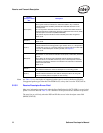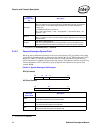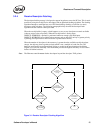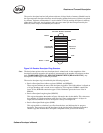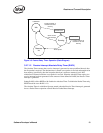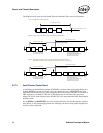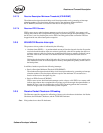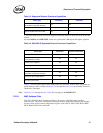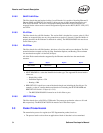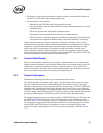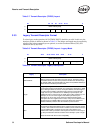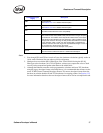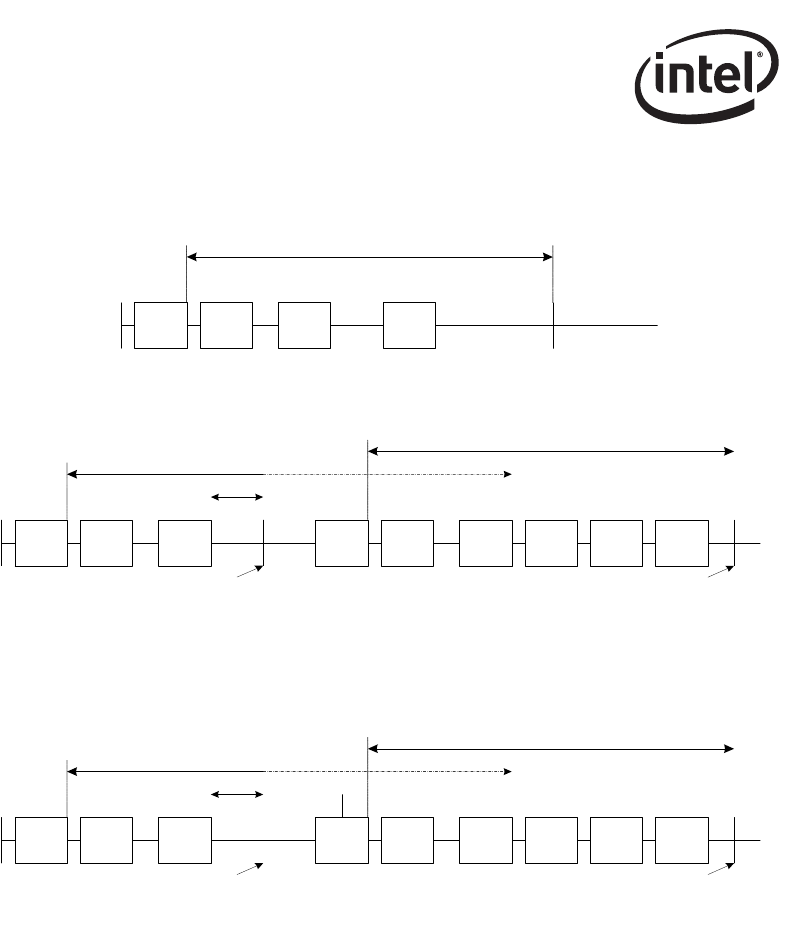
Receive and Transmit Description
30 Software Developer’s Manual
The diagrams below show how the Packet Timer and Absolute Timer can be used together:
3.2.7.2 Small Receive Packet Detect
A Small Receive Packet Detect interrupt (ICR.SRPD) is asserted when small-packet detection is
enabled (RSRPD is set with a non-zero value) and a packet of (size RSRPD.SIZE) has been
transferred into the host memory. When comparing the size the headers and CRC are included (if
CRC stripping is not enabled). CRC and VLAN headers are not included if they have been
stripped. A receive timer interrupt cause (ICR.RXT0) is also noted when the Small Packet Detect
interrupt occurs.
For the 82541xx and 82547GI/EI, receiving a small packet does not clear the absolute or packet
delay timers, so one packet might generate two interrupts, one due to small packet reception and
one due to timer expiration.
A bsolute Timer Value
PKT #1 PKT #2 PKT #3 PKT #4
Interrupt generated due to PKT #1
A bsolute Timer Value
PKT #1 PKT #2 PKT #3 PKT #4
Interrupt generalted (due to PKT #4)
as absolute timer expires.
Packet delay timer disabled untill
next packet is received and
transferred to host memory.
PKT #5 PKT #6 ... ... ...
A bsolute Timer Value
1) Packet timer expires
2) Interrupt generated
3) Absolute timer reset
A bsolute Timer Value
PKT #1 PKT #2 PKT #3 PKT #4
Interrupt generalted (due to PKT #4)
as absolute timer expires.
Packet delay timer disabled untill
next packet is received and
transferred to host memory.
PKT #5 PKT #6 ... ... ...
A bsolute Timer Value
1) Packet timer expires
2) Interrupt generated
3) Absolute timer reset
Case A: Using only an absolute timer
Case B: Using an absolute time in conjunction with the Packet timer
Case C: Packet timer expiring while a packet is transferred to host memory.
Illustrates that packet timer is re-started only after a packet is transferred to host memory.



